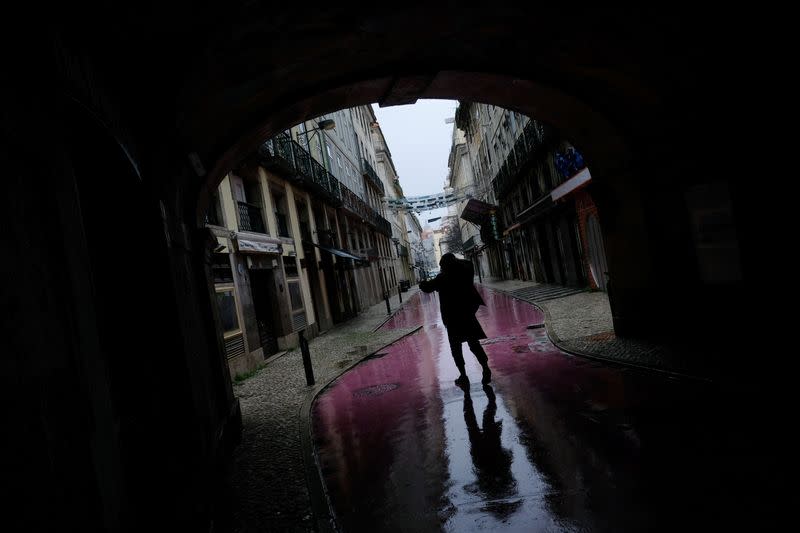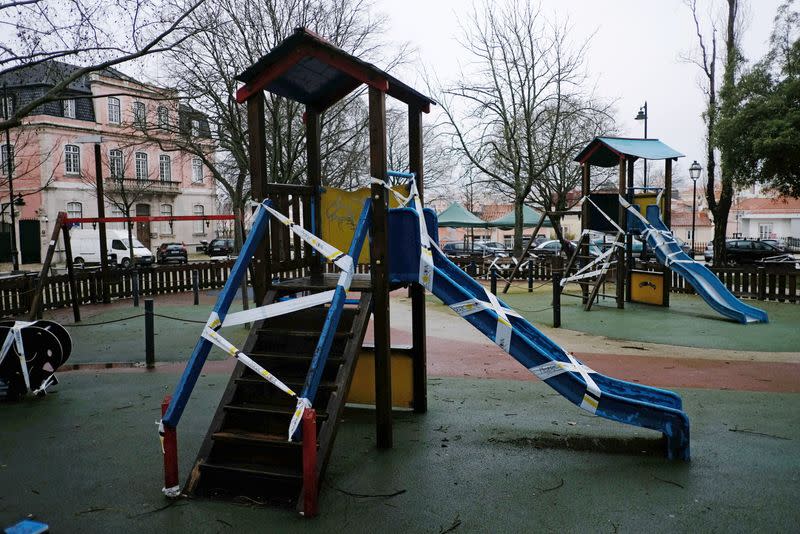Tired and upset: a lament for Portugal's long lockdown
By Victoria Waldersee and Miguel Pereira
LISBON (Reuters) - Portugal's extension of a nationwide lockdown this week in the face of spiking COVID-19 infections and record numbers of patients in intensive care came as no surprise to Marco, who had already shut his Lisbon fitness studio earlier this month.
But the 43-year-old is tired and upset.
"We've been at this for a year, something should have been done sooner," he told Reuters on Friday as he walked his dog in an otherwise largely empty church square.
Facing the world's highest per capita death toll, Portugal has extended a harsh lockdown until mid-February, banned non-essential travel for its nationals and imposed checks on the border with Spain.
The Health Ministry reported 13,200 COVID-19 infections and 278 deaths on Friday, off Thursday's record levels, but with a new peak of 806 people in intensive care, leaving just 44 beds still vacant in the country's entire public health system.
Marco, who declined to give his surname, had to shut his studio this month for the second time since the start of the pandemic and expects it to stay closed for some time to come.
"It was obvious they had to do it. But I'm frustrated. There's just nothing to do," he said.
Prime Minister Antonio Costa said on Wednesday that relaxing restrictions over Christmas had worsened the situation, but he also pointed to the rapid spread of a more contagious variant now estimated to be responsible for around a third of cases.
"They didn't have the courage to keep people at home. It was a big mistake," said Rui Pedro, 56, as he waited for his ride in the morning mist in Lisbon's historic Campo de Ourique neighbourhood, where streets were largely deserted.
Few believe the restrictions will be lifted soon.
"If in March things are good, that's great, but I don't believe it," said Maria Rita Coutinho, 69. "For as long as people don't comprehend that they've got to respect the situation, we're not going anywhere."
At Lisbon's largest hospital, Santa Maria, hours-long queues involving dozens of ambulances have been forming during the past few days. On Friday, the hospital began redirecting non-urgent patients to nearby health centres after doctors established that just 15% of people arriving in ambulances needed hospital care.
(Reporting by Victoria Waldersee, Miguel Pereira, additional reporting by Patricia Rua, editing by Andrei Khalip, Giles Elgood and Gareth Jones)




